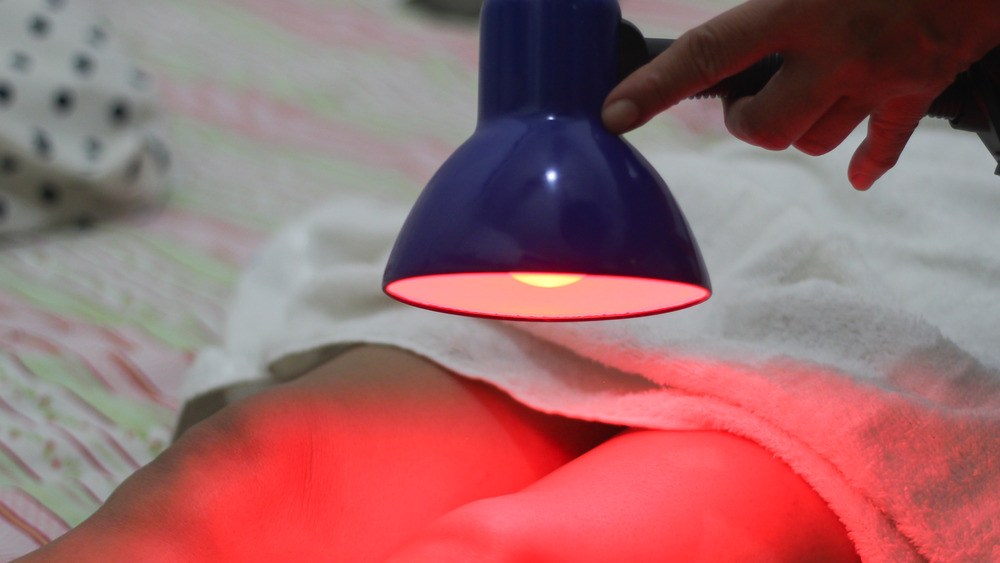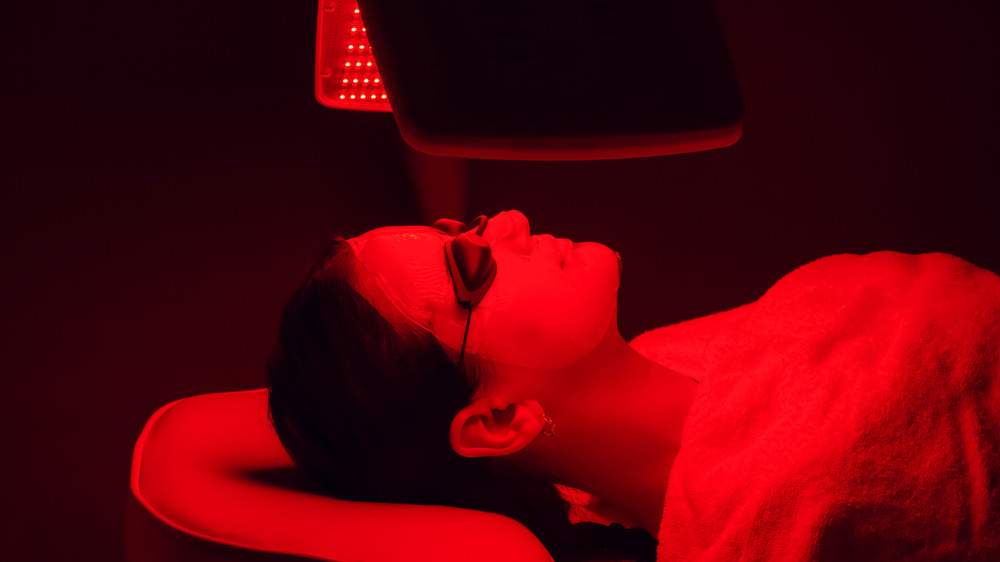The Truth About Red Light Therapy
From skincare studios to fitness clubs, red light therapy boasts countless benefits that keep people coming back for more. Essentially, such treatments involve entering a bed or an area surrounded by red lights and resting as you absorb this wavelength. Said to offset the signs of aging, scars, and wrinkles, this therapeutic modality may do wonders for your skin and sleep patterns, as well.
Healthline notes that this type of skin therapy is thought to work by strengthening the mitochondria present within human cells. Since mitochondria powers the rest of the cell, red light can directly impact its functionality in various areas. The outlet explains that this increase in energy allows human cells to restore themselves, rejuvenating and healing any damaged areas. Furthermore, when you lay in a red light bed, this gentle light does not damage the surface of the skin, but instead gently penetrates 5 millimeters beneath the top layer to aid the aforementioned process.
Aiding in the relief from skin issues such as psoriasis, stretch marks, cellulite, and even deep wound healing, red light therapy offers a holistic alternative to other invasive skin procedures. The therapy's energy-producing effects are also responsible for its workout recovery benefits. Glamour reports that various studies show that red light therapy has been linked with less muscle soreness and reduced range-of-motion impairments up to four days after exercise.
There are two main red light wavelengths many use
As far as the type of red light you should be using, it depends on what you need. If you are looking for a cosmetic treatment for wrinkles and other skin issues, 660 nanometers will do the trick. For deeper healing and recovery, 850-nanometer rays will give you the results you are looking for, Glamour explains. When looking for an at-home device, however, make sure to check the wattage or ask the professional you are working with about the wavelength they are using on your skin.
But, beyond topical recovery, red light may also help balance your hormones, leading to better sleep, less anxiety, and eased digestion. Since we are likely absorbing artificial light all day long in the form of blue rays, red light offers a powerful counter to this shorter light wave, which can impact your circadian rhythm. Circadian rhythms regulate basic bodily functions, like waking up in the morning and drifting off to sleep at night. Natural light in the morning contains red wavelengths, helping the body fall into rhythm with its optimal cycle, Live Science explains. Overexposure to blue light can decrease the body's production of melatonin, making sleep and relaxation more difficult, according to the outlet. Many of us do not absorb enough red light, and having a therapeutic session underneath this wavelength can help with various ailments, Avanti Body asserts.
With so many benefits, it is no wonder why the line for the red light machine can be so long. After your next workout or trip to the spa, it may not be a bad idea to lay underneath the lights for a bit.

